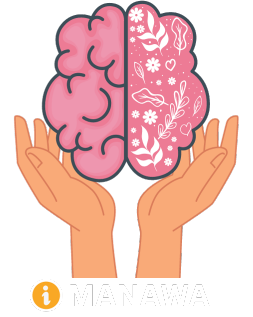
Introduction
Mental health is an integral part of our overall well-being, and it affects how we think, feel, and act. In recent years, there has been a significant increase in awareness surrounding mental health, highlighting the importance of understanding and addressing this crucial aspect of our lives. The World Health Organization (WHO) plays a pivotal role in defining and promoting mental health, providing valuable insights into the subject. In this article, we will delve into the WHO Mental Health Definition, analyzing its significance, and exploring various facets of mental well-being.

What is Mental Health? An In-Depth Outlook
Mental health encompasses a broad range of factors that influence our emotional, psychological, and social well-being. It affects how we think, feel, and handle stress, determines our ability to make choices, build relationships, and cope with challenges. The WHO Mental Health Definition emphasizes that mental health is not merely the absence of mental illnesses but rather a state of well-being in which an individual can realize their potential, cope with the normal stresses of life, work productively, and contribute to their community.

The Dimensions of Mental Well-being
As per the WHO Mental Health Definition, mental health comprises several interconnected dimensions. These dimensions contribute to our overall mental well-being and play a vital role in shaping our experiences and perspectives.

Let’s explore each dimension in detail:
1. Emotional Well-being: Nurturing Positive Emotions
Emotional well-being refers to the ability to understand, express, and manage our emotions in a healthy manner. Cultivating positive emotions, such as happiness, joy, and contentment, can enhance our mental health. It involves recognizing and managing negative emotions effectively, fostering resilience, and seeking support when needed.
2. Psychological Well-being: Harnessing Inner Strength
Psychological well-being encompasses aspects of self-esteem, self-acceptance, autonomy, and the ability to navigate life’s challenges. It involves developing a sense of purpose, establishing meaningful relationships, and effectively coping with stressors. Fostering psychological well-being can lead to increased life satisfaction and a greater sense of fulfillment.
3. Social Well-being: Building Connections
Social well-being revolves around the quality and depth of our interpersonal relationships. It involves maintaining satisfying relationships, fostering a sense of belongingness, and nurturing a support network. Meaningful social connections contribute significantly to our mental health, providing avenues for emotional support, validation, and companionship.
4. Cognitive Well-being: Nurturing Mental Agility
Cognitive well-being focuses on our thinking patterns, mental processes, and cognitive abilities. It includes having a positive attitude, being open to new experiences, and actively engaging in learning and problem-solving. Nurturing cognitive well-being can enhance our adaptability, resilience, and ability to navigate life’s complexities.
5. Spiritual Well-being: Finding Meaning and Purpose
Spiritual well-being refers to the search for meaning, purpose, and connection to something greater than oneself. It involves exploring personal values, beliefs, and principles, which provide a sense of purpose and guidance. Cultivating spiritual well-being can foster a deeper understanding of ourselves and our place in the world, contributing to overall mental wellness.
Common Misconceptions Surrounding Mental Health
There are many misconceptions surrounding mental health that often hinder understanding and acceptance. Let’s shed light on some of these misconceptions:
Misconception 1: Mental Health is a Sign of Weakness
Contrary to popular belief, mental health challenges do not indicate weakness or a lack of resilience. They are medical conditions that require attention and support, just like physical ailments.
Misconception 2: Mental Health Issues Are Rare
Mental health disorders are more common than most people realize, affecting individuals from all walks of life. It is crucial to recognize the prevalence of mental health challenges and promote understanding and empathy within society.
Misconception 3: Seeking Help is Unnecessary
Seeking help for mental health concerns is crucial and not a sign of failure. Mental health professionals are available to provide support, guidance, and evidence-based treatments to improve overall well-being.
Misconception 4: Mental Health Only Affects Individuals
Mental health also impacts relationships, families, workplaces, and communities as a whole. Addressing mental health collectively benefits society by enhancing overall productivity, happiness, and well-being.
Frequently Asked Questions (FAQs)
- What are the early signs of mental health issues? Ans: Early signs of mental health issues may include persistent sadness, changes in sleep or appetite, withdrawal from activities, difficulty concentrating, and increased irritability. It is crucial to seek help if these signs persist.
- Can mental health issues be prevented? Ans: While not all mental health issues can be prevented, certain preventive measures can promote mental well-being. These include maintaining a healthy lifestyle, seeking social support, managing stress, and practicing self-care.
- How can I support a loved one experiencing mental health challenges? Ans: Supporting a loved one with mental health challenges involves offering understanding, compassion, and non-judgmental listening. Encourage them to seek professional help, remind them that they are not alone, and provide practical support wherever possible.
- What is the impact of stigma on mental health? Ans: Stigma surrounding mental health can contribute to feelings of shame, isolation, and reluctance to seek help. It is important to challenge and dismantle stigma, creating a safe and accepting environment for individuals with mental health concerns.
Conclusion
Understanding the WHO Mental Health Definition and the importance of mental well-being empowers individuals to prioritize their mental health and support others in their journey towards overall well-being. By nurturing emotional, psychological, social, cognitive, and spiritual dimensions, we can create a conducive environment for mental well-being. Let us embrace the significance of mental health and work collectively to foster a healthier and happier society for all.
